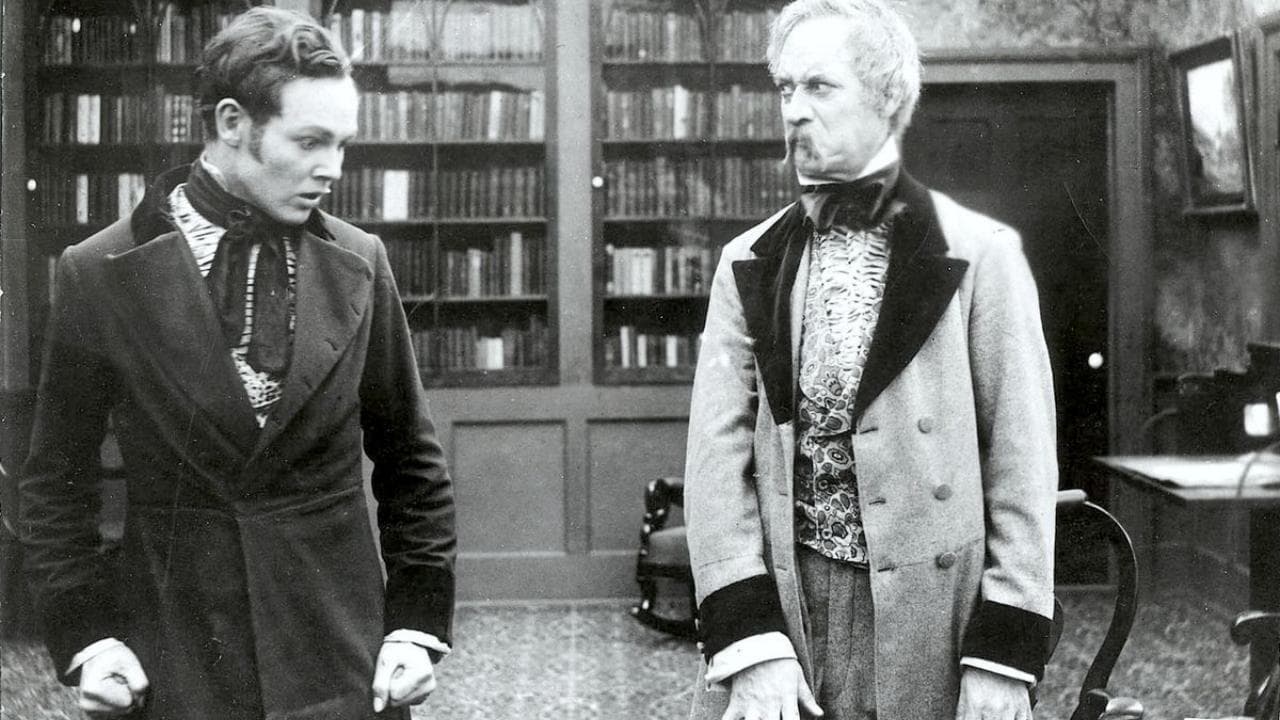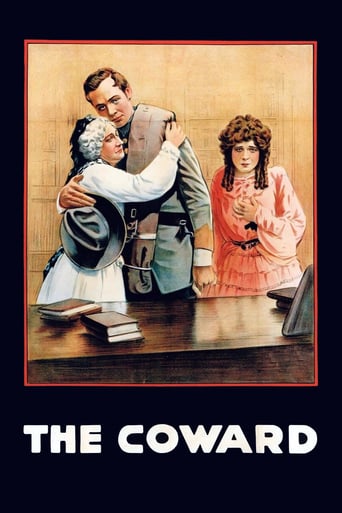

You won't be disappointed!
... View MoreStylish but barely mediocre overall
... View MoreA brilliant film that helped define a genre
... View MoreIt is interesting even when nothing much happens, which is for most of its 3-hour running time. Read full review
... View MoreInce had nothing to reproach himself for with regard to Giffith. He had already produced and directed a lavish and highly successful civil war epic two years before A Birth of a Nation - The Battle of Gettysburg (sadly now lost). It was a subject he had made very much his own also in a series of fine shorts in the early teens. Unfortunately by 1915 he was seemingly producing rather more than directing and relying heavily on Reginald Barker.Around 1914-1915 there develop in US film an irksome fashion for the overuse of the close-up and the close medium-shot. There is nothing old-fashioned about it per se (it is in fact one of the consequences of the increasing dominance of Griffith-style editing) but it was retrogressive in encouraging a revival of "the facial", the old vaudeville technique of concentrating on facial expressions to express different emotions and this comeback of the facial (quite common in very early shorts) in dramatic films at this time is a serious error and quite contrary to Ince's own earlier directorial style. It was entirely typical of Barker and is even worse in The Italian which came out the same year (reviewed separately). It encouraged an increase in melodrama (which one sees equally in the films of Griffith) at the expense of any broader context.As regards the theme, too, it is false to see this "paternalistic" view as in any way opposed to the racist notions of Dixon and Griffith. This is to confuse attitudes towards the ante-bellum and the post-bellum situations. It is in a fact absolutely a continuation of their "revisionist" view (in reaction essentially to the popularity of Uncle Tom's Cabin which expressed a much darker view of Southern slave-owning) and so for that matter is Mitchell's later Gone with the Wind. It was a view that established itself firmly at precisely this time (see the difference between the 1914 and 1927 versions of Uncle Tom's Cabin) and was entirely a piece with the racist views of Dixon and Griffith and the contemporaneous refounding of the Ku Klux Klan.As for the war than, that does not even have the virtue of originality. Novels and films about cowards nearly always follow broadly the same pattern and there had been plenty of them. Quite apart from the A. E. W. Mason classic The Four Feathers (filmed by Dawley for Metro in this same year) and the 1910 Griffith film The House with Closed Shutters (which has considerably more originality), this film also resembles an earlier Ince production, the 1913 short Silent Heroes (directed by Walter Edwards).So here we have fashionable neo-melodramatic acting and fashionable ante-bellum nostalgia for a slave-owning society and a highly unoriginal story - a long way from the sharper, more thoughtful work that Ince himself was capable of.It would be wrong however to equate this style or these attitudes with early film in general. They are quite specific to the US and that taste for "satisfying melodrama" has changed very little over the years. For the completely opposite tendency stylistically compare with the contemporary Russian films of Yevgeny Bauer. Bauer was notorious for not allowing his actors to act, in other words for forbidding them to make facial grimaces and grand gestures. For Bauer, one of the first genuine geniuses of the cinema, the work was done not by the actors but by the camera and the mise en scène. In essence this notion was at the origin of what later came to be called "the Kuleshov effect" (Lev Kuleshov was originally Bauer's décorateur). Later it became associated with Soviet "montage" but the important element, what you might call the principle of "non-acting" had already been promulgated by Bauer.
... View MoreCharles Ray's first picture at Triangle with producer Thomas Ince, The Coward (1915), today seems trite and badly overacted despite its star-making status at the time. Frank Keenan (made up to look like a human gargoyle, especially in close-ups) as Colonel Jefferson Winslow volunteers both himself and his son in the cause of the Confederacy, but he is rejected because of his age. His son, played by Ray, is in love and painfully aware of his own cowardice, only enlisting as his father points a gun at him. During sentry duty, he panics and runs home.Old Colonel Winslow takes the son's place to redeem the family honor. However, when the Yankees occupy Winslow's home town and the son overhears their military plans, he makes a risky escape back to the Confederate camp to inform the general. It is the father's own bullet which fells the son as he passes through the lines, and the general must unite the reluctant father with his son who has made victory possible.Much of the insight into the inner experience and the emotion of the "soul-fight" (as critics referred to this aspect of the drama at the time) was achieved through camera angle and cutting. The battle scenes include none of the principles and appear to have been shot separately; the negative cost of the five or six reel production was $17,922.Ray recalled that the role was so unsympathetic that no one wanted to be cast in the unheroic part, but he begged for it. "I worked so hard over that Coward that he just couldn't help being real. I dreamed him and lived him and for the time being, I was not Charles Ray—I was that boy." The match of the stage veteran Keenan with the youthful Ray, who actually had more screen experience, was so popular that the pair reappeared in subsequent father-son pairings.Ray's success was to make him type-cast; he could not leave a certain type of role because of adverse public reaction. As he noted, "After that, I played cowards for a year. People in this business seem to think that because you make a hit in a character once, you should never stop playing it." He typically played a young weakling or a deserter, who is redeemed but often dies in the process. William S. Hart's characters for Ince followed a similar trajectory, but begin at a different point: the strong, mature man who has taken the wrong way in life and must find his way back. The Coward also became one of the best-remembered examples of the Civil War cycle in Thomas Ince's productions, as I outline in my Ince biography.
... View MoreThis interesting period melodrama ties together several themes, and generally succeeds in examining them during the course of the story. Neither of the most prominent characters (the father and son) are especially sympathetic, and yet the story is such that it involves your emotions for both of them, even when their actions are discreditable.The 'coward' of the title is the son of a retired colonel, whose father insists that he enlist in the Confederate Army when the Civil War begins. "The Coward", like an earlier Thomas Ince feature, "Drummer Boy of the 8th", depicts the unfounded mass excitement that accompanied the outbreak of war, this time on the other side. Here, the son is practically the only one not filled with enthusiasm for the South's war effort. The crisis comes later on when the 'coward' is the only one who knows a piece of vital information.The story that develops features several interesting turns, and it brings out various points not only about bravery and duty, but about family relationships and other themes. Some aspects of its perspective may seem a little odd now, but it presents its ideas believably and without overstatement.Both the action sequences and the confrontations between father and son are often given Ince's attentiveness to detail and composition. Whether intentional or not, in a number of the family scenes the characters' movements are particularly deliberate, with the effect of drawing out their sometimes uncomfortable conversations, and thus increasing the tension. There is also quite a contrast established between the very civilized study in which the father repeatedly lectures his son, and the brutal tactics that he uses to get his son to do his bidding.Civil War features were quite popular in this era, and there are others that are better remembered, but this movie has several strengths, and it provides a slightly different perspective of its own.
... View MoreThe simple and, by now, oft-told tale of a son who fears that he cannot live up to the high standards of his father may have been fresher in 1915 than it seems today. However, viewers of early silent films should put themselves into the perspective of the times and relish a Civil War story that was filmed while many in the audience could still remember the actual war. The Civil War took place only 50 years before "The Coward" was made, which is approximately the same time span between World War II and "Saving Private Ryan." A fresh-looking Charles Ray portrays Frank Winslow, the son of a proud and unyielding Southern gentleman, and his performance is the most naturalistic of the small cast. A handsome young man with an appropriately innocent demeanor, Ray manages to convey his ambivalence about resisting enlistment in the Confederate Army, a move that will alienate him from his stern father, who insists that his son uphold the family honor. Bowing to his father's orders and threats, the young man joins the army, where he makes a fateful decision. Although subsequent events play out as anyone could predict, viewer interest never lags because the film is tight and decently paced.Unfortunately, much of the cast, especially Frank Keenan as the father, are either stiff or overly emotive in their roles, which makes Ray that much more appealing in contrast. Characteristic of the times, white actors in black face play the two household slaves. While the condition of the print makes evaluation of the cinematography difficult, the interior scenes for the most part betray the flimsy sets that were used. However, the exterior shots, especially the brief battle scenes, are convincing and effective."The Coward" is an amiable film with a well-worn plot and is likely typical of silent films that were produced prior to the 1920's. While neither a work of art nor even the best of its era, the film offers an interesting glimpse of what entertained moviegoers during the years before World War I.
... View More